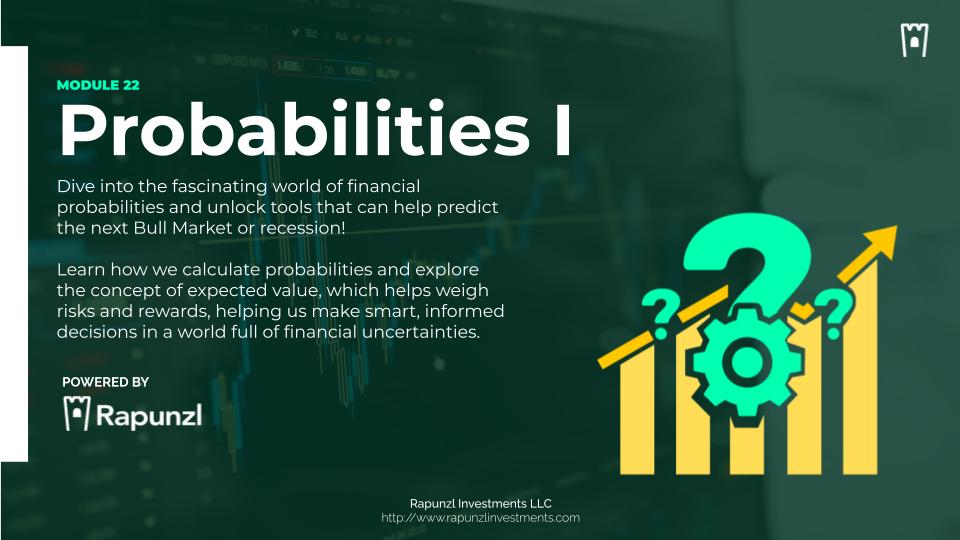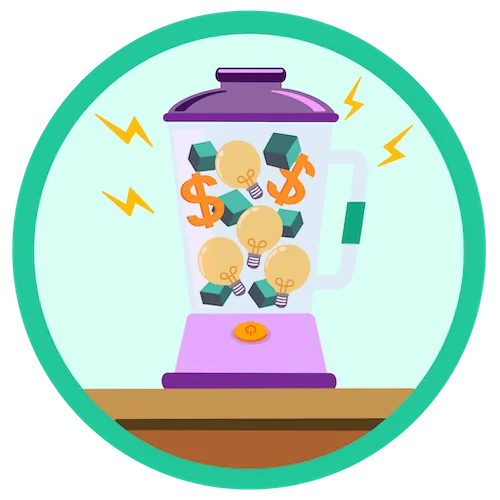
Module 22
Financial Probabilities
Dive into the fascinating world of financial probabilities and unlock tools that can help predict the next Bull Market or Recession!
Learn how we calculate probabilities and explore the concept of expected value, which helps weigh risks and rewards, helping us make smart, informed decisions in a world full of financial uncertainties.
Module At A Glance
Grade Levels:
6th - 12th
Est. Length:
2-5 Hours (15 slides)
Activities:
2 Activites
Articles:
2 Articles
Languages:
English & Spanish
Curriculum Fit:
Math, Business, Economics, CTE, Social Studies
Standards Alignment:
CEE National Standards, Jump$tart National Standards & Relevant State Standards

Guiding Questions
- What are probabilities and how do they help us make informed decisions about the future?
- How can we create probabilities to help us model any scenario?
- What is the probability of a recession and are there indicators that can help us change this probability?
- How do compound probabilities work and how are they calculated?
- What are conditional probabilities and how are they more complicated?
Enduring Understandings
- Probabilities are used to make informed predictions about future events, enabling better decision making under uncertainty.
- We can construct probabilistic models to simulate real-world scenarios.
- Probabilities can be applied in finance all the time - from predicting the likelihood of a recession to understanding the trillion dollar insurance industry.
- How to calculate an understand compound probabilities.
Module Vocab & Key Topics
Probability
A measure of the likelihood that an event will occur, between 0 and 1.
Event
An outcome or a set of outcomes of a random phenomenon or experiment.
Sample Space
The set of all possible outcomes in a probability experiment.
Mutually Exclusive Events
Two or more events that cannot occur at the same time.
Independent Events
Events where the occurrence of one does not affect the probability of the other.
Dependent Events
Events where the occurrence of one event affects the probability of the other.
Expected Value
The average value of a random variable over a large number of experiments or trials.
Conditional Probability
The probability of an event occurring given that another event has already occurred.
Compound Probability
The likelihood of two or more independent events occurring together.
Probability Axiom
A fundamental rule in probability stating that the probability of the entire sample space is 1.
Addition Rule
A rule used to find the probability of the union of two events.
Multiplication Rule
A rule used to find the probability of the intersection of two independent events.
Law of Total Probability
A principle that breaks down the probability of an event into a sum of probabilities under different conditions or scenarios.
Random Variable
A variable whose value is subject to variations due to chance.
Probability Distribution
A mathematical function that provides the probabilities of occurrence of different possible outcomes.
Normal Distribution
A probability distribution that is symmetric about the mean, showing that data near the mean are more frequent in occurrence than data far from the mean.










